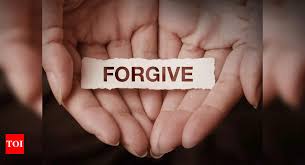
In any relationship, whether it’s romantic, familial, or platonic, misunderstandings and conflicts are inevitable. These challenges, while often uncomfortable, present opportunities for growth and deeper connection. One of the most powerful tools in overcoming these difficulties is forgiveness. The act of forgiving, when genuine, can heal wounds, rebuild trust, and restore emotional intimacy.
This article explores the crucial role forgiveness plays in healing relationships and offers practical strategies for integrating forgiveness into your relationship dynamics.
Understanding Forgiveness in Relationships
Forgiveness is not just a simple act of saying “I forgive you.” It is a complex and deeply emotional process that involves letting go of resentment, anger, and the desire for revenge. In the context of relationships, forgiveness is essential for overcoming past hurts and creating a foundation for a healthier, more trusting connection. It allows individuals to move beyond the pain and focus on rebuilding their relationship.
The Psychological Benefits of Forgiveness:
- Emotional Healing: Forgiveness helps individuals release negative emotions that can otherwise fester and create emotional barriers.
- Mental Peace: Letting go of grudges reduces stress and anxiety, leading to a more peaceful state of mind.
- Improved Communication: When forgiveness is practiced, it opens the door for honest and compassionate communication, which is essential for resolving conflicts effectively.
The Impact of Forgiveness on Trust and Emotional Intimacy
Forgiveness plays a critical role in building trust in relationships. When one partner makes a mistake, whether big or small, it can cause a rift in the relationship. Trust is often the first casualty in such scenarios. However, when forgiveness is extended, it signals to the other person that they are valued and that their mistakes do not define the relationship.
Rebuilding Trust After Infidelity:
Infidelity is one of the most challenging breaches of trust in a relationship. For many, the pain of betrayal can seem insurmountable. Yet, many couples who have gone through marriage counseling success stories have found that forgiveness was the key to their healing process. By forgiving their partner, they were able to rebuild trust and even strengthen their emotional intimacy.
- Acknowledge the Pain: Both partners must openly discuss the hurt caused by the infidelity and acknowledge the emotional pain.
- Seek Professional Help: A marriage counselor can provide guidance on how to navigate the complex emotions involved in forgiveness and help rebuild trust.
- Commit to Rebuilding: Forgiveness is not a one-time act; it requires a continuous effort to rebuild trust through consistent actions and open communication.
Forgiveness as a Strategy for Saving a Failing Marriage
In many cases, unresolved conflicts and grudges can lead to a failing marriage. The inability to forgive often results in a cycle of blame and resentment, which can deteriorate the relationship over time. However, strategies for saving a failing marriage often emphasize the importance of forgiveness as a cornerstone of reconciliation.
Steps to Forgiving in a Failing Marriage:
- Identify the Root Cause: Understand the underlying issues that led to the conflict or hurt. This may involve deep introspection or discussions with a counselor.
- Practice Empathy: Try to see the situation from your partner’s perspective. This can help you understand their actions and emotions better, making it easier to forgive.
- Establish Boundaries: Forgiveness does not mean forgetting or allowing the same behavior to repeat. Establishing clear boundaries helps prevent future conflicts.
Forgiveness and Conflict Resolution
In relationships, conflict is inevitable. However, how couples manage these conflicts determines the health and longevity of their relationship. Effective conflict resolution strategies often include forgiveness as a key component. Without forgiveness, conflicts can lead to lingering resentment, which can harm the relationship in the long run.
Integrating Forgiveness into Conflict Resolution:
- Stay Calm: Approach conflicts with a calm and open mind. Avoid letting anger or frustration drive your responses.
- Listen Actively: Give your partner the space to express their feelings without interruption. Active listening can help both parties feel heard and understood.
- Offer and Accept Apologies: When conflicts arise, be willing to apologize for your role in the situation and accept your partner’s apology in return.
- Move Forward: Once forgiveness has been granted, make a conscious effort to move forward and not dwell on past conflicts.
Maintaining Emotional Intimacy Through Forgiveness
Forgiveness is vital in maintaining emotional intimacy in a relationship. Emotional intimacy is the closeness and connection that partners feel, which is nurtured through trust, understanding, and forgiveness. When partners forgive each other, they demonstrate their commitment to the relationship, which in turn strengthens their emotional bond.
Ways to Foster Emotional Intimacy Through Forgiveness:
- Communicate Openly: Share your feelings and vulnerabilities with your partner. Open communication builds a deeper emotional connection.
- Practice Gratitude: Regularly express gratitude for your partner and the positive aspects of your relationship. This helps maintain a positive outlook, even during tough times.
- Engage in Shared Activities: Spend quality time together doing activities that both partners enjoy. This strengthens the emotional connection and creates positive memories.
Conclusion
Forgiveness is not just a moral obligation; it is a vital practice that can heal relationships, rebuild trust, and restore emotional intimacy. Whether dealing with everyday misunderstandings or more significant issues like infidelity, forgiveness allows couples to move forward together. By incorporating forgiveness into your relationship, you create a foundation for a healthier, more fulfilling connection that can withstand the challenges of life.
In the journey of love and companionship, forgiveness is the bridge that connects the heartache of the past with the hope of the future. Embrace it, and let it guide you toward a more peaceful and harmonious relationship.
Thank you for reading!
Kindly share, like and comment!
Share this content:





